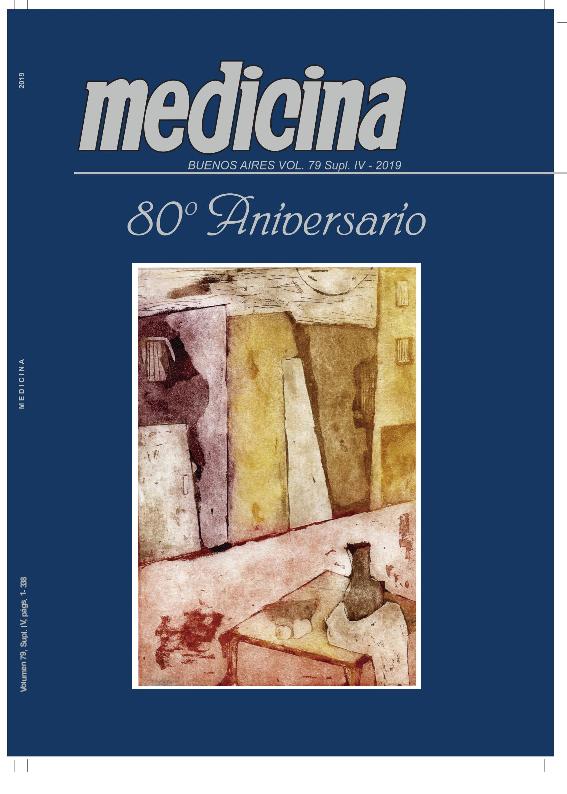Evento
In silico-guided drug repurposing: identification of non-competitive inhibitors of Trypanosoma cruzi and Plasmodium falciparum cysteine proteases
Tipo del evento:
Reunión
Nombre del evento:
LXIV Reunión Anual de la Sociedad Argentina de Investigación Clínica; LI Reunión Anual de la Asociación Argentina de Farmacología Experimenta; XXI Reunión Anual de la Sociedad Argentina de Biología; XXXI Reunión Anual de la Sociedad Argentina de Protozoología; IX Reunión Anual de la Asociación Argentina de Nanomedicinas y VI Reunión Científica Regional de la Asociación Argentina de Ciencia y Tecnología de Animales de Laboratorio
Fecha del evento:
13/11/2019
Institución Organizadora:
Sociedad Argentina de Investigación Clínica;
Asociación Argentina de Farmacología Experimental;
Sociedad Argentina de Biología;
Sociedad Argentina de Protozoología;
Asociación Argentina de Nanomedicinas;
Asociación Argentina de Ciencia y Tecnología de Animales de Laboratorio;
Título de la revista:
Medicina (Buenos Aires)
Editorial:
Fundación Revista Medicina
ISSN:
0025-7680
e-ISSN:
1669-9106
Idioma:
Inglés
Clasificación temática:
Resumen
Abstract/Resumen: Trypanosoma cruzi and Plasmodium falciparum are the etiologic agents of Chagas disease and Malaria, respectively. Cysteine proteases play key roles in the pathogenesis and survival of these parasites, such as cell/tissue penetration, hydrolysis of host or parasite proteins, autophagy, and evasion or modulation of the host immune response, being considered attractive chemotherapeutic targets. Cruzipain (Cz) and Falcipain-2 (FP-2) are two essential cysteine proteases of such organisms. Previously, we have found that methacycline (a member of tetracycline family) is a non-competitive inhibitor of FP-2 (Alberca et al. 2019). In this study our objective has been the characterization of six tetracycline analogues (tetracycline, minocycline, doxycycline, oxytetracycline, chlortetracycline and methacycline) as inhibitors of these cysteine proteases by in silico and in vitro determinations. First, we used bioinformatic tools to predict possible allosteric binding pockets; subsequently, we studied their possible interactions with these proteases by molecular docking simulations. The structures of the enzymes were obtained from the Protein data bank. Finally, we proceed to inhibition studies on the purified enzymes, which confirmed that these family of antibiotics inhibit cysteine proteases in a reversible, non-competitive manner, with Ki values in the mid-micromolar order. Our results provide further evidence on the utility of computational tools as a rational basis for systematic drug repurposing.
Palabras clave:
CYSTEIN PROTEASES
,
MALARIA
,
DRUG REPOSITIONING
,
CHAGAS
Archivos asociados
Licencia
Identificadores
Colecciones
Eventos(IIB-INTECH)
Eventos de INST.DE INVEST.BIOTECNOLOGICAS - INSTITUTO TECNOLOGICO CHASCOMUS
Eventos de INST.DE INVEST.BIOTECNOLOGICAS - INSTITUTO TECNOLOGICO CHASCOMUS
Eventos(INGEBI)
Eventos de INST.DE INVEST.EN ING.GENETICA Y BIOL.MOLECULAR "DR. HECTOR N TORRES"
Eventos de INST.DE INVEST.EN ING.GENETICA Y BIOL.MOLECULAR "DR. HECTOR N TORRES"
Citación
In silico-guided drug repurposing: identification of non-competitive inhibitors of Trypanosoma cruzi and Plasmodium falciparum cysteine proteases; LXIV Reunión Anual de la Sociedad Argentina de Investigación Clínica; LI Reunión Anual de la Asociación Argentina de Farmacología Experimenta; XXI Reunión Anual de la Sociedad Argentina de Biología; XXXI Reunión Anual de la Sociedad Argentina de Protozoología; IX Reunión Anual de la Asociación Argentina de Nanomedicinas y VI Reunión Científica Regional de la Asociación Argentina de Ciencia y Tecnología de Animales de Laboratorio; Mar del Plata; Argentina; 2019; 1-6
Compartir




